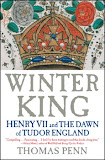Okay, this blog says "History (mostly Canadian)," but we can go abroad from time to time.
One of my summer reads, on the recommendation of historian, activist, blogger Claire Potter has been Ted Widmer's Lincoln on the Verge. On the surface, it looks like another American presidential hagiography. This one is a long, immensely detailed and annotated account of virtually every single moment of the thirteen days Abraham Lincoln spent travelling by train from his home in Illinois to Washington, DC, for his inauguration early in 1861. If a child of 1861 remembered in 1920 what she thought she recalled of the great man's passage through her town, Widner devotes at least a paragraph to the history of the town and to each version of the alleged memory. Long-gone blogger Historiann used to call examples of this kind of worshipful attention to the lives of Founders and Presidents a "sausage fest" every time another one appeared.Yet Potter has a point: Widmer's onto something. Beyond the pleasures of a well-told microhistory that comes from a lifetime of diligent trawling through obscure sources in which Lincoln is only a peripheral interest, this is a history with an argument to make.
Lincoln, Widmer insists, was a fluky nobody as president-elect. He won only because the vote split four ways. But his candidacy was the closest thing available to a principled rejection of the slave power in the United States, just as attempts to appease it were coming to be understood outside the South as useless, ineffectual, and immoral. Widmer effectively argues that Lincoln's long circuitous train trip and its endless whistle stops allowed people of the northern states to see a new leader. The crowds gathering to hear him say a few words often outnumbered the population of the towns themselves. Something important to American history was happening, as Lincoln and his crowds saw in themselves a conviction that the Union should be saved and slavery somehow ended. The awkward homely man was growing into President Lincoln. The crowds were growing into the Northern consensus that slavery and the union were incompatible and that war would be unavoidable if one was to be ended and the other preserved.
Widmer also effectively makes a case Lincoln took his bearings from the 1776 declaration of independence ("all men are created equal") rather than the 1797 constitution designed to allow (and disguise) slavery. And indeed the consequence of Lincoln's victorious war was substantial amendment of that constitution to bring it more into line with the Declaration.
It often seems that Canadians know too much American history just as we know too much of American current events. But Widmer keeps me reading as he developed this point. And it's topical. The book was published before the 2020 election, but Widmer recounts how 1860 was the previous case of the losers conspiring to use the official Congressional certification of the vote as the moment for a coup d'etat. (Could some Trumpian thug possibly have seen this book and said, hmmm?)
A little earlier in the summer, seeing Colm Feore as Richard III at Stratford sent me looking for a historical backgrounder on Shakespeare's villain. Sure, Shakepeare was writing for the Tudors who controlled what could be said and seen in his day, and sure, he made up most of his drama, as a playwright should. But a recent biography by Chris Skidmore convinced me he had the essentials down: Richard was surely one murderous son of a bitch, and lethally dangerous to be around. His only saving grace was that everyone else of consequence in War of the Roses England was just as awful. if he didn't whack them, they'd have whacked him in a heartbeat. Did, in the end. Skidmore's is a clunky uncreative piece of work, though it has the evidence you need. A much better read on the period is The Winter King, Thomas Penn's biography of Richard's killer, Henry VII, founder of anothe line of murderous psychos, the Tudor dynasty.Any reads to match these from Canadianists? I may have some more summer reading reports to come.
Update August 10: I see the standard history of the Civil War, McPherson's Battle Cry of Freedom, says briefly of Lincoln's railroad voyage, "This tour may have been a mistake." And Widmer does have to keep finding genius in some pretty anodyne speeches, dismissed by McPherson as "platitudes and trivia."

